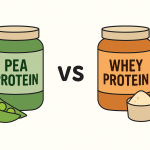Are you curious about peppermint tea and wondering peppermint tea what is it good for? This naturally caffeine-free, refreshing herbal tea offers more than just a cool minty flavor. Across cultures and generations, peppermint tea has been cherished for its soothing effects on digestion, stress relief, and much more. In this guide, we’ll explore the science-backed benefits, current health trends, nutritional value, and practical tips for enjoying peppermint tea’s unique wellness rewards.
Whether you are an adult seeking better digestion, a senior wanting gentle relaxation, or a fitness beginner looking for an antioxidant boost, peppermint tea can be a valuable beverage to include in your daily routine.
What Is Peppermint Tea? A Refreshing Herbal Delight
Peppermint tea is brewed from the leaves of the peppermint plant (Mentha × piperita), a hybrid of watermint and spearmint. Known for its cool, refreshing taste and menthol aroma, this caffeine-free tea is packed with essential oils like menthol, giving it therapeutic effects. It’s often consumed hot or cold and used worldwide as a natural remedy for a variety of health concerns.
1. Peppermint Tea and Digestive Health
One of the top reasons people drink peppermint tea is for improved digestion. Peppermint compounds relax smooth muscles in the gastrointestinal tract, helping relieve indigestion, bloating, gas, and stomach cramps.
Benefits Include:
Soothes upset stomach and relieves IBS symptoms
Reduces abdominal pain and cramps
Helps ease nausea and vomiting
Studies show peppermint oil significantly reduces symptoms in people with irritable bowel syndrome, and peppermint tea may offer similar soothing effects naturally.
2. Stress Relief and Mental Clarity
Feeling fatigued or overwhelmed? Peppermint tea’s invigorating aroma contains menthol, which can uplift your mood and reduce anxiety.
How Peppermint Tea Helps:
Relaxes tense muscles and calms mind
Reduces fatigue and mental stress
Enhances concentration and alertness
Research even suggests that inhaling peppermint scent or sipping peppermint tea can boost focus and decrease feelings of anxiety by up to 20%. It’s a great choice to unwind after a hectic day or boost your energy without caffeine.
3. Respiratory Benefits and Congestion Relief
Peppermint tea acts as a natural decongestant by opening nasal passages and loosening mucus.
Key Effects:
Eases symptoms of colds, allergies, and asthma
Supports clearer breathing due to menthol’s cooling properties
Soothes sore throats and coughs
Drinking warm peppermint tea with its steam can bring quick relief during respiratory discomfort through its expectorant action.
4. Menstrual Cramp Relief and Muscle Relaxation
Thanks to its muscle-relaxing properties, peppermint tea may ease the severity and duration of menstrual cramps and muscle spasms.
Benefits:
Acts as a gentle antispasmodic
Reduces pain intensity and nausea related to menstruation
Helps relax muscles after workouts or daily tension
Many women find peppermint tea a natural alternative to painkillers for calming period discomfort.
5. Peppermint Tea and Weight Management
Trying to control appetite or reduce calorie intake? Peppermint tea can assist by curbing cravings and boosting metabolism.
How It Works:
Strong mint aroma suppresses hunger cues
Calorie-free alternative to sugary drinks
May enhance fat metabolism when combined with healthy lifestyle
Switching to peppermint tea for evening or post-meal cravings can support your weight goals naturally.
Nutritional Profile and Antioxidant Power
Besides refreshing taste, peppermint tea contains antioxidants and antibacterial compounds, including flavonoids and rosmarinic acid.
Benefits:
Helps combat oxidative stress and free radicals
Supports immune system function
Promotes skin health by reducing inflammation
Regularly enjoying peppermint tea provides mild antioxidant support contributing to overall wellness.
How to Brew Peppermint Tea for Best Results
For maximum benefits and flavor:
Use 1 tablespoon fresh or 1 teaspoon dried peppermint leaves per cup.
Steep in boiling water for 5-7 minutes.
Strain and enjoy hot, or chill for a refreshing iced tea.
Optional: Add honey or lemon to taste without overpowering the mint.
Tip: Quality leaves and fresh steeping preserve essential oils responsible for health benefits.
Current Trends: Peppermint Tea in Wellness Culture
Growing popularity as a caffeine-free, natural refreshment
Integration into stress management and mindfulness rituals
Featured in detox and digestive cleanse programs
Use in aromatherapy and natural skincare products leveraging menthol’s cooling effect
Peppermint tea fits seamlessly into modern lifestyles focused on holistic health and natural remedies.
FAQs: Peppermint Tea What Is It Good For?
1. Is peppermint tea safe to drink daily?
Yes, generally it’s safe but avoid if you have acid reflux or are allergic to mint.
2. Can peppermint tea help with headaches?
Peppermint’s menthol can relieve tension headaches when consumed or applied topically.
3. How much peppermint tea should I drink?
2-3 cups daily is typical; excessive amounts might cause mild side effects.
4. Does peppermint tea have caffeine?
No, pure peppermint tea is naturally caffeine-free.
5. Can peppermint tea interact with medications?
Consult your doctor if taking antacids or certain blood pressure drugs.
Final Thoughts
Peppermint tea offers a delightful way to support digestion, ease stress, relieve congestion, and more—all while enjoying a naturally refreshing beverage. Its versatility and health benefits make it an excellent addition to your daily wellness routine.
Would you like to start incorporating peppermint tea into your life? Brew a cup today, savor the cool freshness, and feel the calming and revitalizing effects for yourself! Ready to discover more about herbal wellness? Let’s explore together.








